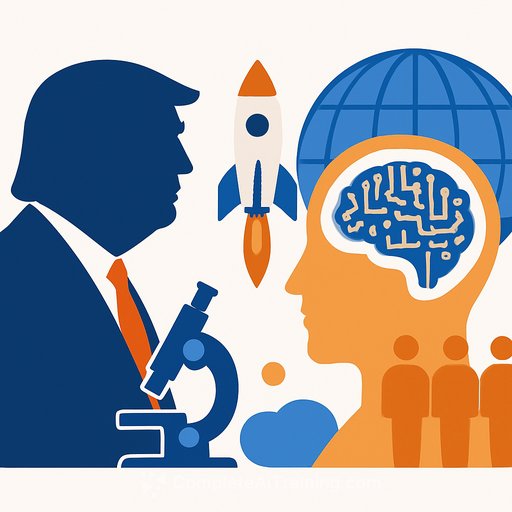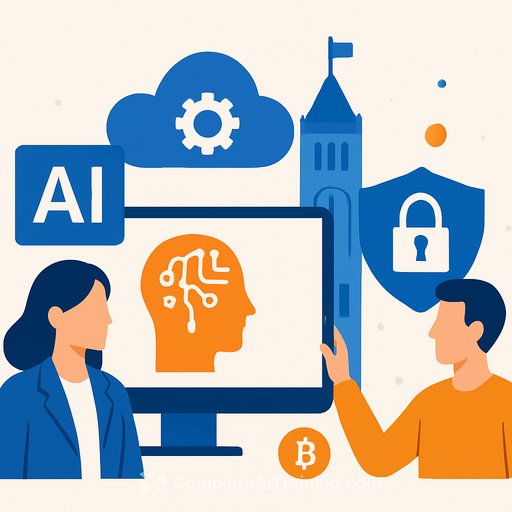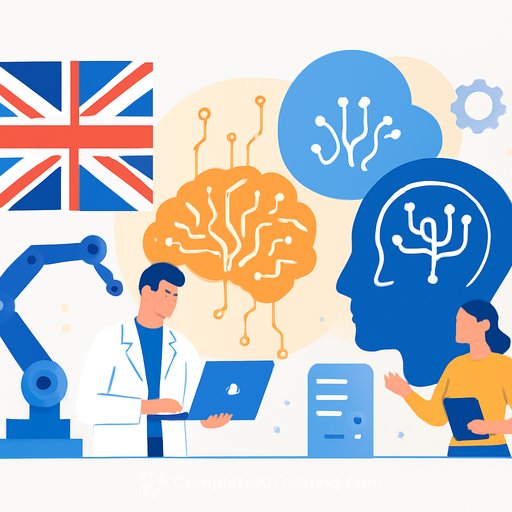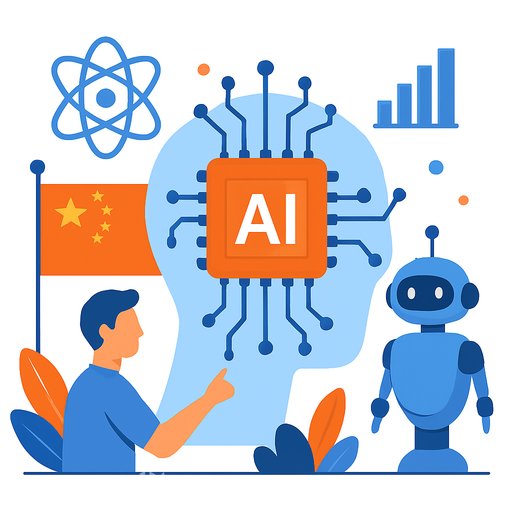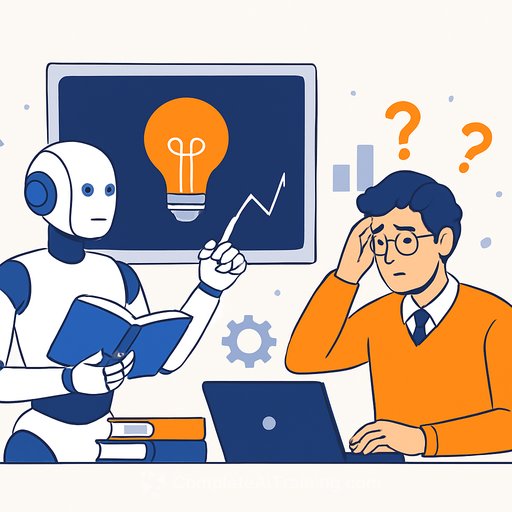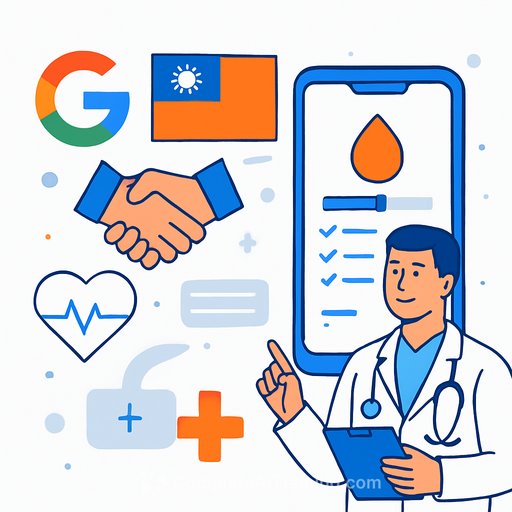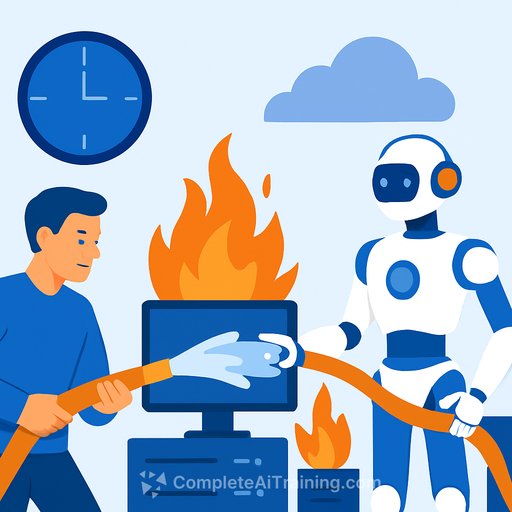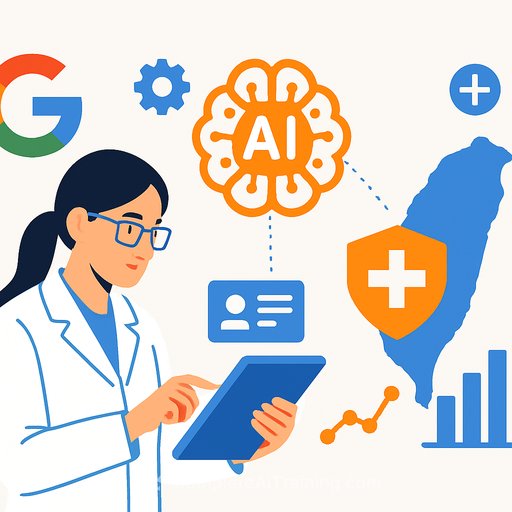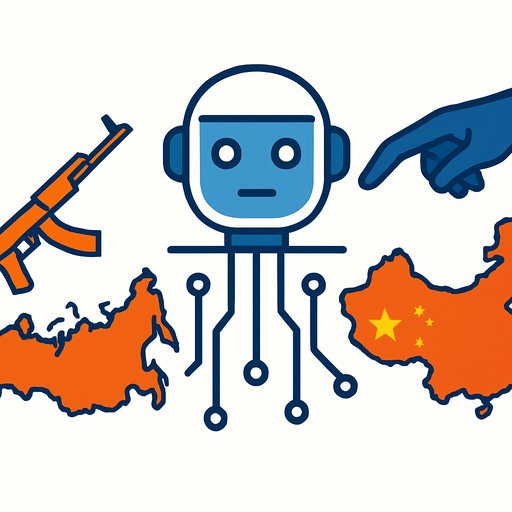Genesis Mission: Will a US push on AI-for-science spark a global response?
The White House has launched the Genesis Mission, a plan to wire up the US government's data troves and supercomputers into an AI platform for science. The aim: accelerate discoveries in energy, health, security, and more-and cement US leadership. The Department of Energy says the effort could double the productivity and impact of American science within a decade.
Big promise, big signal. If the US moves fast, others will have to decide whether to partner, compete, or risk getting sidelined.
What the White House announced
Genesis directs the Department of Energy to build a "closed-loop AI experimentation platform" by linking the 17 national labs' compute and data. Think scientific foundation models that can test hypotheses, run experiments, and automate parts of the research cycle.
The scope is wide: security, biotechnology, critical materials, nuclear fission and fusion, space, quantum, and semiconductors. Major tech companies-including Microsoft, Nvidia, Google, and Amazon-are expected to participate alongside universities and major research facilities.
Michael Kratsios, the President's top science advisor, will coordinate the mission across agencies. Within 90 days, the team is to identify relevant government facilities. By September 2026, the platform should be tackling at least one major challenge. Funding details are thin; early work will likely repurpose existing budgets, with larger appropriations riding on Congress. As analyst Hodan Omaar notes, long-term momentum will depend on significant Congressional support.
Why this matters for governments, CIOs, and R&D leaders
US capacity advantages are already large. Roughly three-quarters of high-powered AI compute centers sit in the US, with China around 15% and the EU near 5%, according to Epoch AI. That gap compounds as private capital floods into new data centers and models.
Federal policy has reinforced the trend. In 2022, Congress authorized nearly $50 billion for the semiconductor industry through the CHIPS and Science Act, a core input to AI growth. For public-sector leaders, Genesis could become the default rail for AI-driven science in the US-setting norms for data access, safety, and validation.
- Epoch AI: data and analysis on global AI compute capacity
- CHIPS and Science Act fact sheet
International pressure is building
"AI is poised to transform the way we do science and engineering," says Holger Hoos, AI professor at RWTH Aachen. He argues the pressure is mounting-not just on Europe, but also Japan, Canada, and India-to act at scale. A white paper from 29 AI researchers, including Hoos, calls for a multinational program to ensure AI-for-science is reliable, open, and not shaped solely by US or Chinese platforms. Their view: think on the order of $10 billion, not millions.
Europe has started to move. The European Commission introduced the Resource for AI Science in Europe (RAISE) under Horizon Europe to connect data, tools, and researchers. But the initial budget-€107 million for 2026-2027-looks small next to US ambitions and industry spend.
The Genesis order leaves the door cracked for collaboration, tasking Kratsios with identifying international opportunities "as appropriate." Realistically, the first wave will be domestic. Still, the announcement is a catalyst. Other governments now have a clear signal to coordinate-or risk fragmentation.
Benefits and risks leaders should plan for
On the upside: faster drug development, better fusion simulations, stronger cyber defense, and new materials discovery. We've already seen what model-driven science can do in protein research, where AI systems drastically improved structure prediction.
The risks are equally concrete: models that fabricate clinical-trial data, subtle ideological bias creeping into economic and social science, or system vulnerabilities that widen the attack surface. Most of this is manageable with open methods, rigorous evaluation, and transparent audit trails-but only if those practices are prioritized from the start.
What to do next (practical steps)
- Map your data. Identify high-value datasets (and metadata) that could feed foundation models. Prioritize those with clear provenance and licensing.
- Prepare your stack. Inventory compute, storage, and network paths for secure data exchange and federated training. Address identity, access, and encryption early.
- Stand up testbeds. Pick 1-2 use cases (e.g., materials, biosecurity, grid optimization). Define metrics for accuracy, reproducibility, and time-to-result.
- Lock in governance. Require model cards, dataset documentation, and experiment logs. Set human-in-the-loop checkpoints for safety-critical decisions.
- Engage in standards. Track efforts across DOE, NIST, and EU programs for validation and benchmarking. Align to avoid redo and rework later.
- Build talent pipelines. Upskill researchers, data engineers, and program leads on AI-for-science workflows and tooling.
Need a quick way to scope role-based upskilling plans? See curated AI learning paths by function: AI courses by job.
The bottom line
Genesis is a strong move to speed up US science and set defaults for AI-driven research. If other nations want openness, shared benchmarks, and broader access baked in, they'll need to coordinate now. The window to influence standards and data-sharing practices is measured in months, not years.
Your membership also unlocks:

